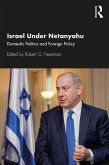Small States theory supports the argument that small international actors have a vital role in the international system. After 9/11, it emerged as a more focused attempt to show that 'small' can be 'attractive and functional' in an era of normative political and religious radicalism. This book argues that Small States Theory is not relevant to the perplexities of the post-multipolar international system and produces a new theory, the Smart States Theory. Based on structural and neoclassical realism, it attempts to identify the origins of 'state-smartness' in foreign policy, leadership, and domestic politics. The United Arab Emirates will be used as the case study of this novel theoretical approach. The impressive evolution of the Trucial States to a modern nation-state of high technology, dynamic foreign policy as the recent pandemic fully showed, unique leadership, and unparalleled tolerance towards other religions and cultures, make the UAE a brilliant example of a smart state of the 21st century. The reader of the book will be introduced to a new theory in International Relations as well as to the history, politics, society, and leadership of a state that plays a pivotal role not only in the Gulf region but in the broader framework of the Middle East too; the United Arab Emirates.
Dieser Download kann aus rechtlichen Gründen nur mit Rechnungsadresse in A, B, BG, CY, CZ, D, DK, EW, E, FIN, F, GR, HR, H, IRL, I, LT, L, LR, M, NL, PL, P, R, S, SLO, SK ausgeliefert werden.









